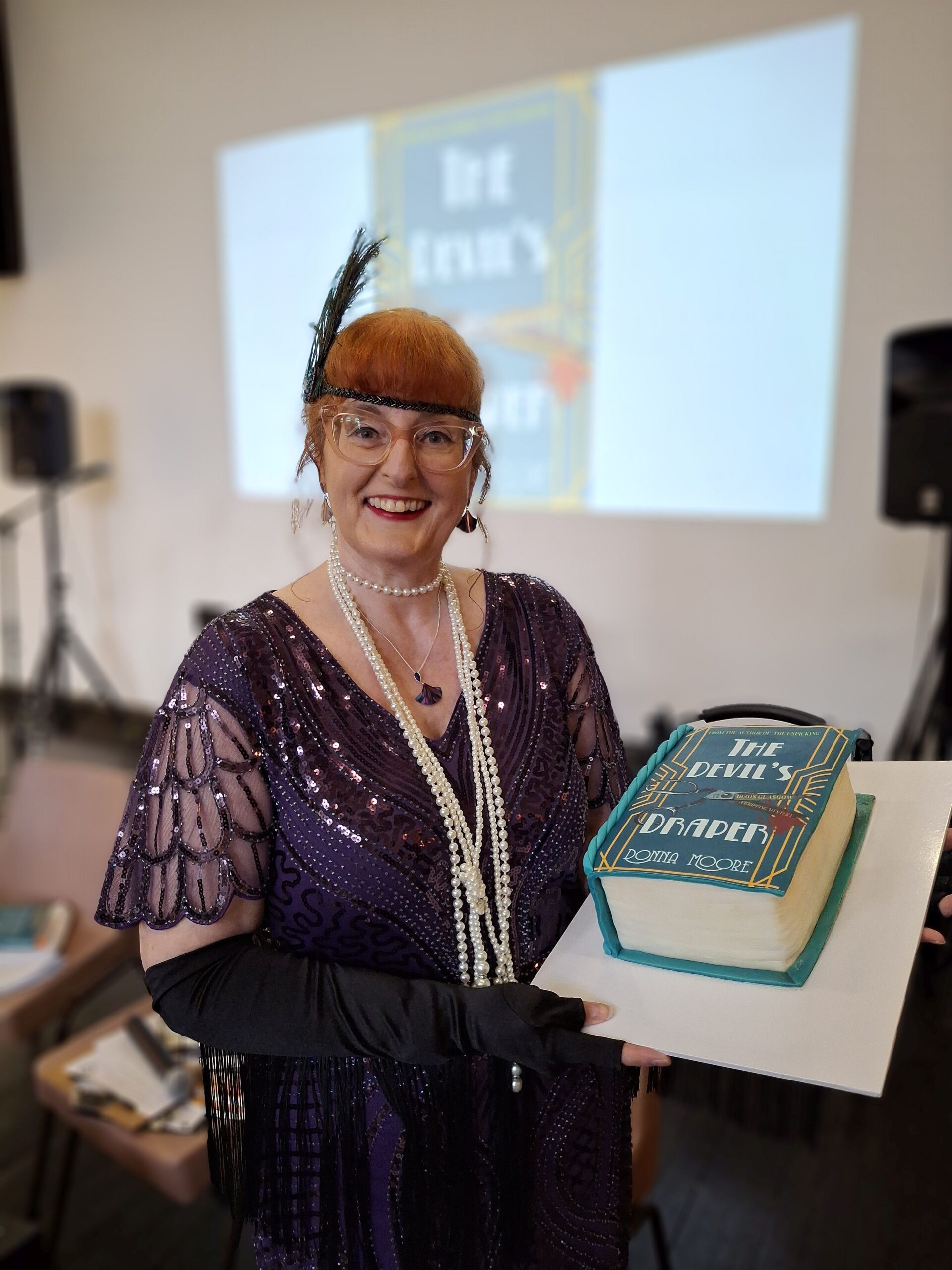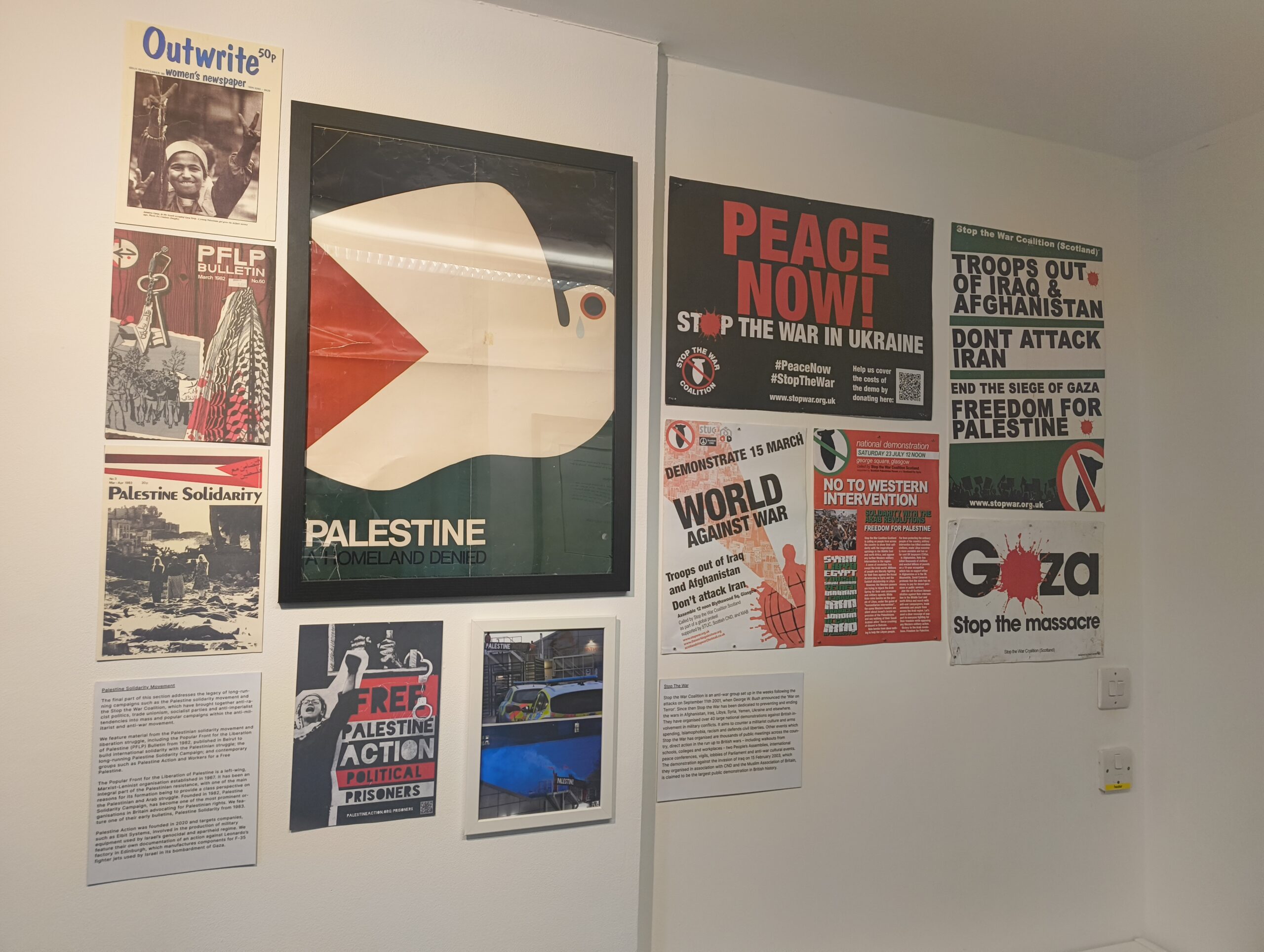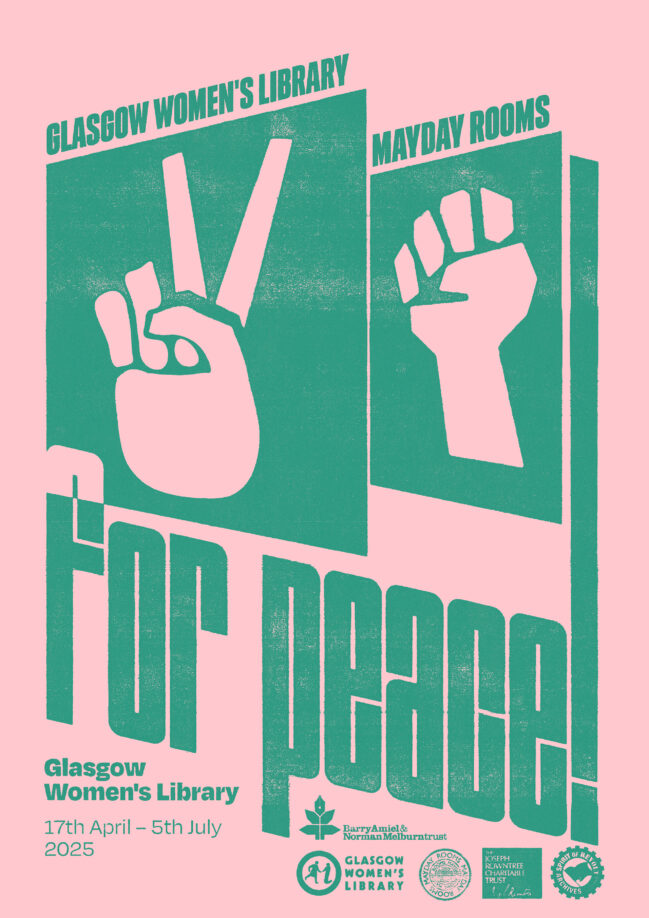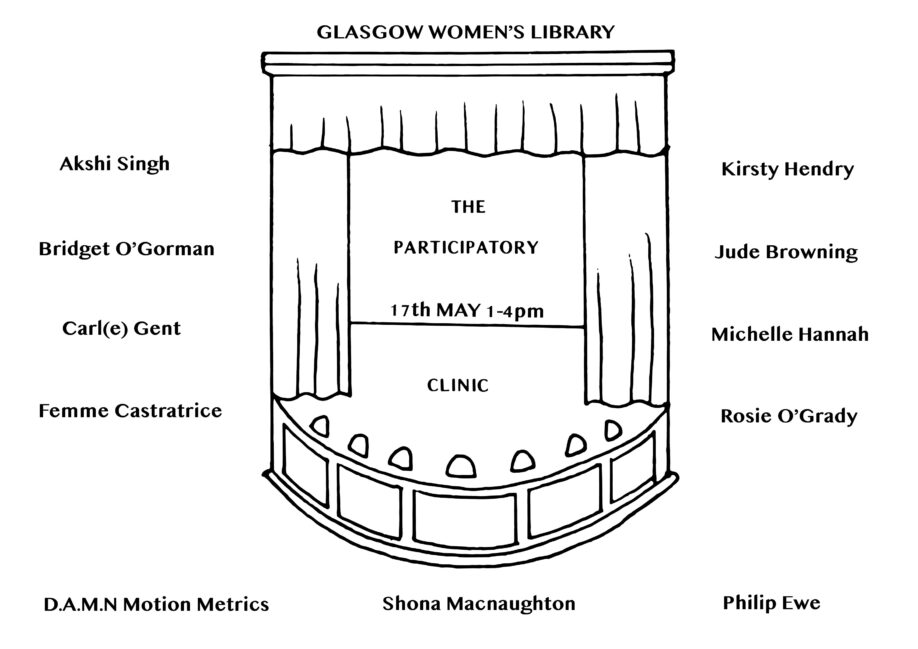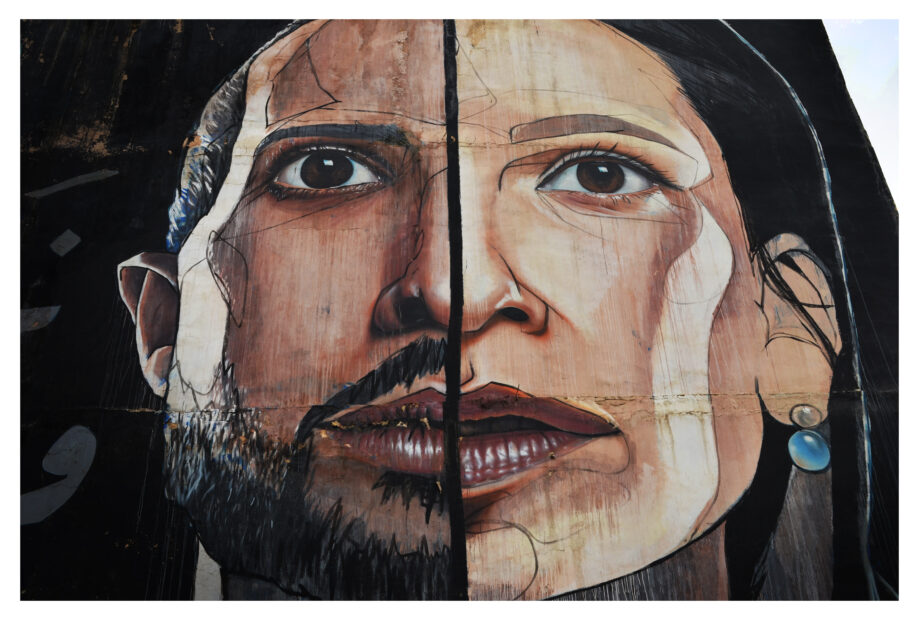Around 2015 a tweet created a flurry of enthusiasm. Writers and readers were being mobilised around the ‘stuckness’ of the literary festival offer at the time and a call was being made for an alternative, a women’s writing festival in Scotland.
The Glasgow Women’s Library team couldn’t resist; expanding the cultural offer from being a playground for the ‘usual suspects’ to creating alternative space for those that were ‘easy to ignore’ (in this instance marginalised readers and writers and those new to literature) was our reason for existing.
One of those people impatient for change and lighting up the twittersphere was writer Lesley McDowell. A connection was made between Lesley and GWL and planning began. Over the years we were to seek out and draw expertise from many individuals, writers, researchers, academics, activists and reading and literature organisations. Alongside Lesley, Zoe Strachan, a writer and GWL Board member, was part of the team that forged Open the Door’s founding principles. We had a photo taken at a meeting in 2016 where after some faltering first steps we took the plunge and agreed to make the first festival a reality. It felt like history was in the making.
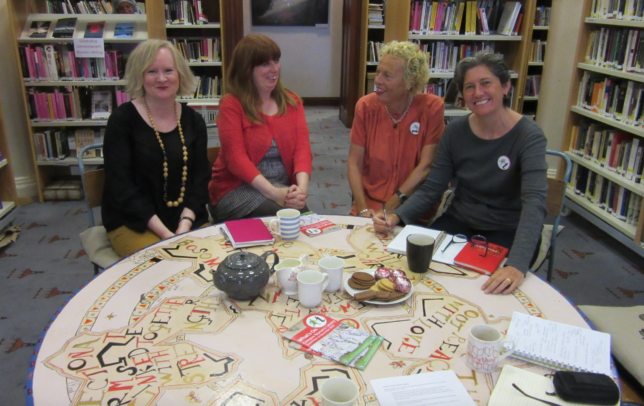
We agreed a name, Open the Door, honouring the remarkable novel of that name by the Scottish writer Catherine Carswell and proclaiming our intention, to use our space and energy to open the door to welcome in new and neglected readers and writers. As our founding aims state, we were creating: ‘a unique annual celebration of and advocate for women’s writing across Scotland. We are passionately committed to bringing women’s writing to as wide an audience as possible. The Festival is run by Glasgow Women’s Library and rooted in values agreed in wider consultation with academics, writers and readers.’
We were launching Open the Door at a critical moment. In the 15 years or so leading up to our Festival there had been an upsurge in the numbers of women being published in Scotland, in all areas of literature. What had been an almost exclusively white, male literary landscape in Scotland, from Burns, through Hogg and Scott, to Alasdair Gray, James Kelman and Irvine Welsh, was being challenged by a body of women writers with diverse backgrounds and identities. Liz Lochhead, Jackie Kay, Imtiaz Dharker and A.L. Kennedy had picked up the torch from the ‘historic’ women writers whose legacy had been largely eclipsed – Catherine Carswell, Nan Shepherd, Willa Muir and Jessie Kesson, to name but a few. Our festival sought to ensure that these ‘lost’ and underrated women writers were spot-lit but importantly our accessible festival would create a space where new writing and new readers could be incubated and connections made.
Open the Door Festival in 2017 demonstrated that there was an appetite for a festival with this focus and approach and that it needed to be ‘intersectional’, addressing the complex barriers that exist in a field that marginalises many groups. In that first festival and subsequently we have showcased writing by women that was at that time too ‘niche’ for or excluded from larger festivals (graphic novels, romance fiction, for example), or not considered ‘literary’ enough (commercial women’s fiction), whilst also providing a space for experimental or controversial work where the ‘risk’ was being borne by small publishers.
Although a Scottish writing festival, we were always thinking about Scottish writers to spotlight with the widest lens: ensuring that the remarkable women writers living and writing in Scotland today who are not Scottish by birth (Helen Fitzgerald, Maggie O’Farrell, Lucy Ellmann, Leila Aboulela, Zoe Wicomb); those born in Scotland but not currently living here ( Kerry Hudson, A L Kennedy, Jackie Kay, Ali Smith); as well as those born here and living here (Liz Lochhead, Alison Miller, Jenni Fagan, Denise Mina, Kirsty Logan, Kathleen Jamie).
Our aims have stayed consistent over the years:
- To run annual live and digital festivals (our first digital outing was in 2018 long before Covid forced the sector to make the move to streamed and related formats) which celebrates and promotes women’s writing in Scotland
- To enable as wide an audience as possible to access women’s writing
- To nurture creative language and reading skills and an enthusiasm for writing among women, particularly Women of Colour and other marginalised groups
- To engage with the national and international women’s writing community by building a worldwide audience for Scotland’s women writers and to encourage a dialogue between audiences, readers and writers globally.
As well as addressing the underrepresentation of marginalised people in the mainstream sector we were keen to explore new ways of staging festival content, from streamed discussions across an expanded tearoom where writers and readers were caught in conversation discussing passions and barriers, inspirations and commonalities, to inviting writers to discuss the films, art and other sources that fuel their creativity. We have staged some remarkable Calm Slams that have showcased the talents of writers locally and globally and nurtured some new talents in the process.
We have involved visual artists and designers throughout, including students from Duncan of Jordanstone College of Art and Design who have created a wealth of wonderful illustrations and animations that help us illuminate local and international historic literary heroines over the years.
In 2017 we were fortunate to have Rachele Dunn, one of our first Visual Communicators in Residence create remarkable graphics and interior designs for our inaugural festival. Here is Rachele pictured before the fun started with the postcards she created for participants in the foreground. She is pictured with Jess Orr who was then a student placement and who brought huge passion and commitment to our early festivals, helping with the coordination of 2017 and 2019.
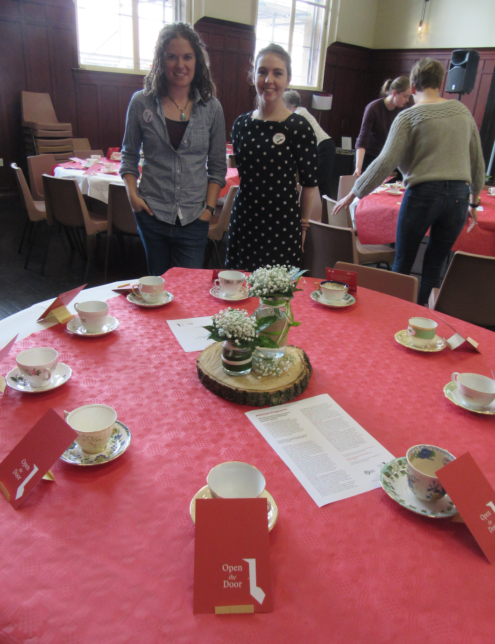
Each year we have become more ambitious in our efforts to showcase writers working in international contexts. This has meant we have created strong links with sister organisations in Brazil, Pakistan and (upcoming in 2023) South Africa and in the process have expanded our knowledge of women writing across the world.
We are proud that Open the Door has achieved a huge amount in its first five outings and has had a part to play in the transformational processes taking place across the literature festival offer in Scotland.
Dr Adele Patrick, Director: Creative Development, Delivery and Engagement
During our 30th anniversary year, we’re asking people what they think about Open the Door and what they would like to see in the future. Even if you’ve never been to Open the Door before, we really want to hear from you! Please fill out our online survey here. Your answers can be as long or short as you like. Thanks for your help!

